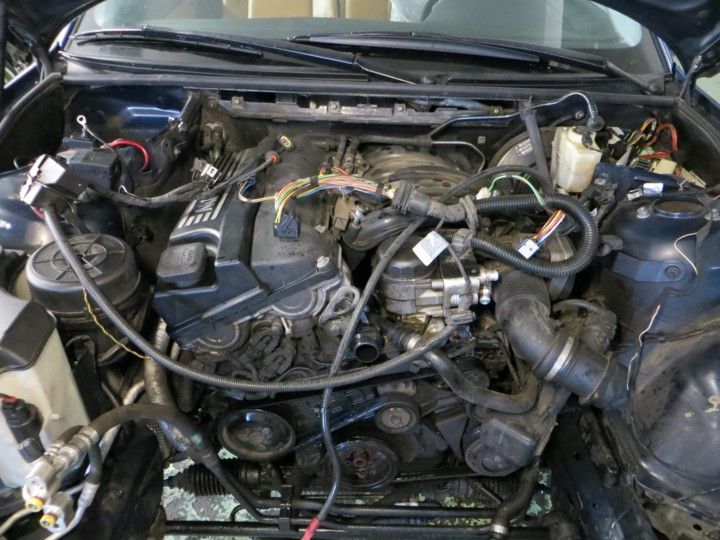BMW 318ti: Where to Locate the most effective Bargains on Components and Add-on
BMW 318ti: Where to Locate the most effective Bargains on Components and Add-on
Blog Article
Crucial Factors To Consider for Selecting the Ideal Engine for Your Requirements
In the realm of choosing the optimal engine to fulfill your requirements, several critical aspects need careful factor to consider to make sure ideal efficiency and performance. From the nuanced balance between power and efficiency to the often-overlooked elements of maintenance and service needs, each facet plays a crucial duty in identifying the most ideal engine for your certain requirements. As the intricacy of engine innovations continues to advance, discerning the most fitting alternative necessitates a deep understanding of the interplay between numerous factors to consider. By checking out the complex web of elements that underpin this decision-making process, a clearer path emerges towards selecting an engine that not just meets however exceeds your expectations.
Power and Efficiency
When evaluating engines for optimal efficiency, it is important to prioritize both power output and efficiency. Performance refers to just how well the engine transforms fuel into functional power. By carefully examining both power and efficiency, you can pick an engine that provides optimum performance and satisfies your demands efficiently.
Gas Performance and Economy
Gas efficiency refers to the engine's capability to transform gas into power with minimal waste, directly impacting operating costs and environmental sustainability. Engines with greater fuel effectiveness not only minimize gas expenses however additionally decrease carbon discharges, adding to a greener operation.

Compatibility and Application
Thinking about the gas efficiency and economic climate of an engine, the next vital element to address is its compatibility and application within particular functional contexts. Compatibility refers to how well the engine incorporates with the overall system or equipment it powers. It includes variables such as physical dimensions, placing options, electrical user interfaces, and control systems. Guaranteeing compatibility is crucial to stop concerns such as overheating, resonances, or power discrepancies (bmw 318ti).
Moreover, the application of the engine is equally essential. Different engines are developed for particular functions, whether it be industrial machinery, aquatic vessels, automobiles, or power generators. Understanding the intended application enables for the choice of an engine that can provide the needed power result, torque, and functional characteristics. A high-revving engine made for performance vehicles would not be appropriate for sturdy building and construction tools that needs high torque at low rates.
Upkeep and Service Requirements
Maintenance and solution needs play an important function in making sure the durability and optimum performance of an engine. Routine upkeep is necessary to stop failures, expand the lifespan of the engine, and preserve its efficiency. When selecting an engine, it is essential to think about the producer's recommended maintenance timetable and the schedule of service centers or certified professionals.
Elements such as the frequency of oil adjustments, filter substitutes, and overall examinations can significantly impact the engine's performance. Some engines might need even more regular maintenance based on their layout and usage, while others might have longer intervals between upkeep checks. It is vital to stick to these service demands to prevent pricey fixings and unforeseen downtime.

Expense and Budget Plan Considerations
When choosing an engine for a certain application,Budget plan restrictions commonly play a considerable role in the decision-making procedure. When taking into consideration the expense and Click This Link budget plan ramifications of picking an engine, it is necessary to examine not only the preliminary purchase price but additionally the long-lasting expenses related to upkeep, fuel usage, and potential upgrades or repair services. It is essential to strike an equilibrium between the ahead of time expense my explanation of the engine and its general lifecycle prices to ensure that the chosen engine stays financially sustainable throughout its functional life-span.
Elements such as fuel toughness, efficiency, and dependability can directly influence the complete cost of possession of an engine. While a more pricey engine might have greater ahead of time costs, it could potentially result in lower maintenance and fuel costs over time, hence supplying better value in the long run.
Final Thought

Gas efficiency refers to the engine's ability to convert gas right into power with minimal waste, straight influencing operating costs and environmental sustainability.Factors affecting gas performance consist of engine design, combustion effectiveness, and general performance optimization. In addition, choosing the proper fuel kind see this here and grade as recommended by the engine maker can even more improve performance and lengthen engine life-span.
Engines with good serviceability functions and conveniently available components can reduce maintenance prices and reduce the time the engine is out of procedure - bmw 318ti. It is essential to strike an equilibrium between the upfront price of the engine and its overall lifecycle expenses to make certain that the selected engine continues to be monetarily lasting throughout its operational lifespan
Report this page